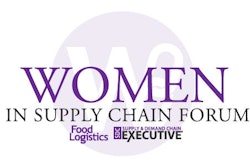
As a woman in the cannabis manufacturing and supply chain industry, I have experienced firsthand how difficult it can be for women to advance their careers — and I also know why it’s so essential for us to do so. As women return to the workforce after the COVID-19 pandemic, we have a rare opportunity to evaluate our workspaces and ensure they are accessible to people of all genders.
Women in the Post-Pandemic Workforce: How Does the Supply Chain Industry Compare?
During the COVID-19 pandemic, women had to leave the workforce in far greater numbers than their male counterparts. Now, more than three years after the pandemic began, we are seeing this trend reverse: more women are in the workforce than ever before.
However, women aren’t approaching equality in the workforce across all industries; the cannabis and supply chain industries still lag behind the national average. As of 2021, women held just over 31% of executive positions in the United States. However, in the cannabis industry, women occupy only 23% of executive positions and women comprise just 15% of top-level executives in the supply chain industry.
3 Reasons Including Women in the Manufacturing Workforce is Essential
Including women in the supply chain industry isn’t just a talking point; it’s essential in building a company that excels above the competition.
1. Gender Diversity in Manufacturing Helps Business Succeed
Studies have shown that companies with a more diverse range of employees tend to outperform less diverse companies. As of 2019, companies in the top quartile for gender diversity were 25% more likely to report above-average profitability than companies in the bottom quartile.
Welcoming diverse workers and viewpoints to the professional environment undeniably has a positive impact on a company’s overall performance. This alone should be plenty of motivation to bring women into the manufacturing and supply chain industry, but there are other reasons I would like to touch on as well.
2. Customers Prefer to Support Ethical Supply Chain Companies
Over recent years, customers have become more concerned with supporting companies that uphold values they agree with. 91% of Americans think gender equality is an important topic, so it follows that these individuals will be more likely to become loyal clients of manufacturing and supply chain companies that emphasize the importance of women in the workplace.
3. Women Bring Unique Skillsets to the Supply Chain Industry
There is a reason women tend to be viewed as more empathetic and communicative than men: studies have shown that women tend to outperform male coworkers in these skill sets.
Workplaces across all industries are beginning to value “soft skills” such as empathy, communication, collaboration and attention to detail more highly — skills women tend to excel in naturally. Including women in the manufacturing workforce and ensuring their voices are heard is an excellent way to create a more respectful, collaborative workplace environment for all employees.
3 Ways to Welcome Women Back into the Supply Chain Workforce
It takes direct action to include women in the manufacturing and supply chain industry, but the benefits are remarkable. Here are three ways companies can take steps toward female representation as women return to work after COVID’s “she-cession.”
1. Champion Diversity, Equity, and Inclusion Policies in the Supply Chain Industry
In today’s world, companies across all industries should have diversity, equity and inclusion (DEI) policies in place as par for the course. DEI policies are especially important, however, in industries that are lagging in terms of gender diversity, such as the supply chain industry and the cannabis industry.
2. Support and Recognize Female Supply Chain Workers
Simply having women on the payroll isn’t enough; these women must also feel heard, supported and recognized. Ensure that female workers’ voices are amplified in meetings, ask them for their perspectives and acknowledge their hard work.
Recognizing and supporting women in the supply chain industry is an everyday practice but nominating them for an industry-specific award can also speak volumes. The 2023 Women in Supply Chain Award, presented by Supply & Demand Chain Executive & Food Logistics, for example, is an incredible opportunity to highlight hardworking women in the supply chain industry.
3. Emphasize Work/Life Balance to Bring Women into the Manufacturing Workforce
Finally, it’s essential to ensure that women in the workforce have their needs met in terms of the workplace culture, environment, and working conditions.
Fair pay, benefits such as generous maternity leave and DEI initiatives all make a big difference in helping women feel comfortable and welcome in the manufacturing workforce. However, most women cite flexibility and a healthy work/life balance as the biggest motivators in choosing a workplace. Implementing small changes to allow workers flexibility in when and how they work can be massively beneficial to all employees, increasing productivity and employee satisfaction as a whole.
A Strong Return from the She-cession Helps Everyone
As the “she-cession” ends and women return to work, it’s more important than ever to ensure our workplaces in the cannabis, manufacturing and supply chain industries are welcoming to female workers. Having a diverse workforce, and implementing small policy shifts to make this possible, will have a markedly positive effect on all employees of every gender and, therefore on the company as a whole.


![Pros To Know 2026 [color]](https://img.sdcexec.com/mindful/acbm/workspaces/default/uploads/2025/08/prostoknow-2026-color.mduFvhpgMk.png?auto=format%2Ccompress&bg=fff&fill-color=fff&fit=fill&h=100&q=70&w=100)







![Pros To Know 2026 [color]](https://img.sdcexec.com/mindful/acbm/workspaces/default/uploads/2025/08/prostoknow-2026-color.mduFvhpgMk.png?ar=16%3A9&auto=format%2Ccompress&bg=fff&fill-color=fff&fit=fill&h=135&q=70&w=240)








